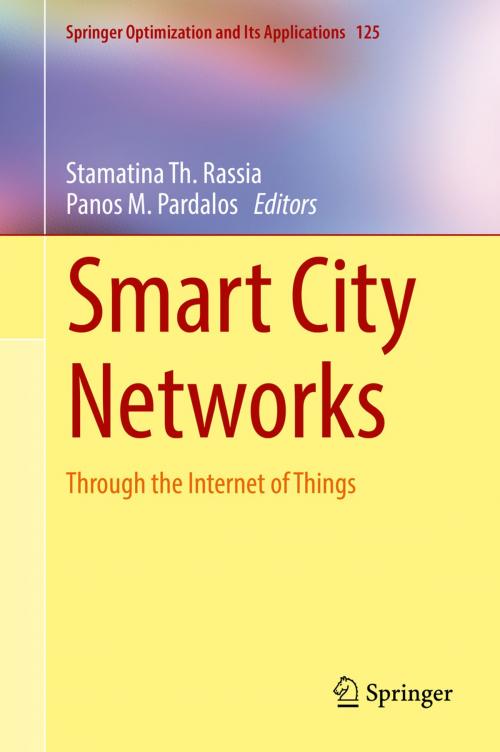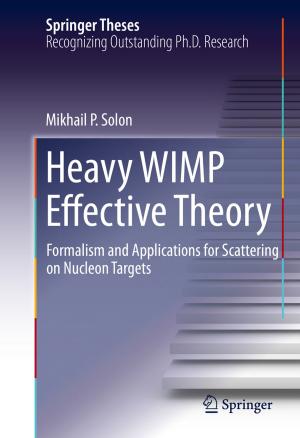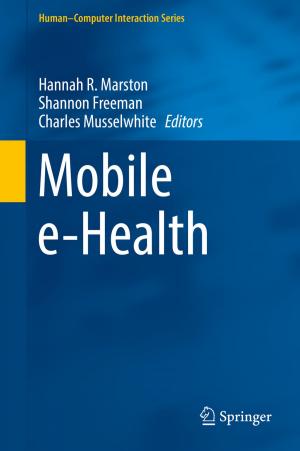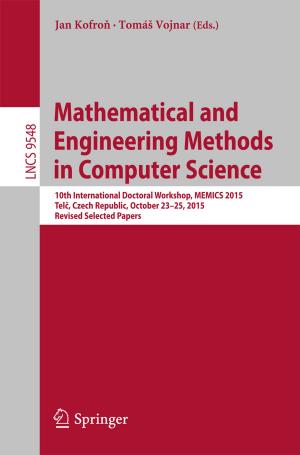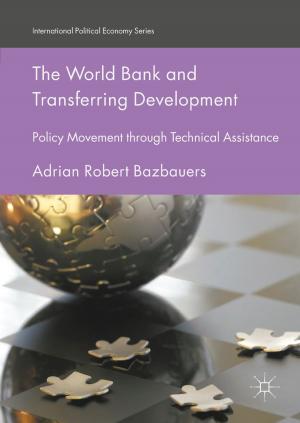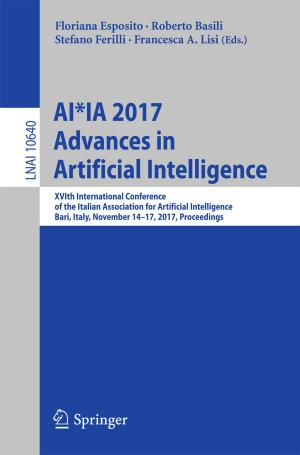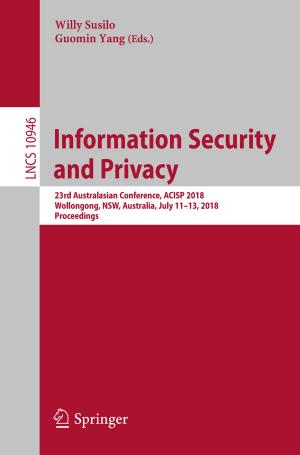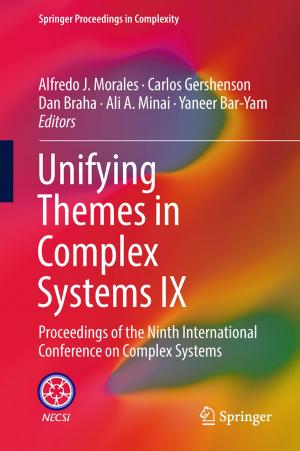Smart City Networks
Through the Internet of Things
Nonfiction, Science & Nature, Mathematics, Applied, Computers, Database Management| Author: | ISBN: | 9783319613130 | |
| Publisher: | Springer International Publishing | Publication: | October 4, 2017 |
| Imprint: | Springer | Language: | English |
| Author: | |
| ISBN: | 9783319613130 |
| Publisher: | Springer International Publishing |
| Publication: | October 4, 2017 |
| Imprint: | Springer |
| Language: | English |
This book both analyzes and synthesizes new cutting-edge theories and methods for future design implementations in smart cities through interdisciplinary synergizing of architecture, technology, and theInternet of Things (IoT). Implementation of IoT enables the collection and data exchange of objects embedded with electronics, software, sensors, and network connectivity. Recently IoT practices have moved into uniquely identifiable objects that are able to transfer data directly into networks. This book features new technologically advanced ideas, highlighting properties of smart future city networks.
Chapter contributors include theorists, computer scientists, mathematicians, and interdisciplinary planners, who currently work on identifying theories, essential elements, and practices where the IoT can impact the formation of smart cities and sustainability via optimization, network analyses, data mining, mathematical modeling and engineering. Moreover, this book includes research-based theories and real world practices aimed toward graduate researchers, experts, practitioners and the general public interested in architecture, engineering, mathematical modeling, industrial design, computer science technologies, and related fields.
This book both analyzes and synthesizes new cutting-edge theories and methods for future design implementations in smart cities through interdisciplinary synergizing of architecture, technology, and theInternet of Things (IoT). Implementation of IoT enables the collection and data exchange of objects embedded with electronics, software, sensors, and network connectivity. Recently IoT practices have moved into uniquely identifiable objects that are able to transfer data directly into networks. This book features new technologically advanced ideas, highlighting properties of smart future city networks.
Chapter contributors include theorists, computer scientists, mathematicians, and interdisciplinary planners, who currently work on identifying theories, essential elements, and practices where the IoT can impact the formation of smart cities and sustainability via optimization, network analyses, data mining, mathematical modeling and engineering. Moreover, this book includes research-based theories and real world practices aimed toward graduate researchers, experts, practitioners and the general public interested in architecture, engineering, mathematical modeling, industrial design, computer science technologies, and related fields.
